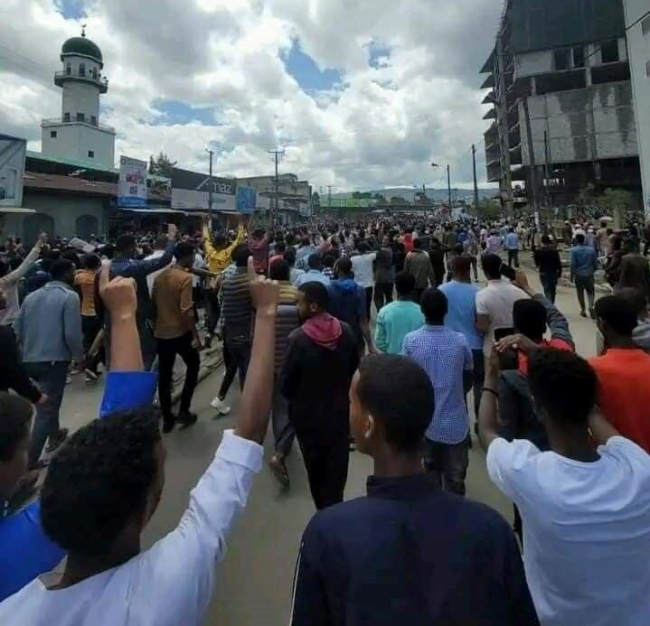Ethiopia’s Muslims Harshly Protest over Demolishing Mosques Featured
As Ethiopian Muslims completed their Friday (Jum'a) Prayers, on May 26, they began denouncing the government's decision to demolish more than 30 Mosques in the newly established Shaggar City, formerly Oromia Special Zone Surrounding Finfinne.
Addis Ababa Police attempted to storm the Anwar Grand Mosque amid protests on Friday. But the police angered the Muslims inside who saw the police's move as an attempt to desecrate the holy place. This forced the Muslims to throw stones at the police pushing them out of the Mosque.
In a statement released on Friday, Addis Ababa Police said that two were killed. Although the statement did identify the victims, they were later identified as Siraj Mohammed and Abubaker Elias.
Addis police said only four individuals, 37 police officers as well as 15 different police backup forces were injured.
Many expected better years when the Oromia Regional government decided to establish Shaggar City with a promise of ensuring equal growth and prosperity for cities around Addis Ababa. Unfortunately, this promise included destroying thousands of homes including the desecration of holy places.
The Ethiopian Institution of the Ombudsman reported that it has received over one hundred thousand complaints from citizens about the government's decision to make thousands homeless in Shaggar City. The institution expressed its worry that the demolishing of homes came without preparing temporary shelters let alone replacement homes.
The Federal Supreme Council of Islamic Affairs of Ethiopia sent a letter to Prime Minister Abiy Ahmed seeking an end to the demolitions but its complaints fell on deaf ears. Ethiopian Muslims were, moreover, displeased by the silence of its religious leaders who were prominent in the struggle for Muslim rights (Dimtsachin Yisema) in 2012. These religious leaders, such as Ustaz Ahmedin Jebel and Ustaz Abubeker Ahmed, apparently have grown very close to the ruling party, Prosperity Party, especially PM Abiy Ahmed.
Like the Ethiopian Muslim protests that took place ten years ago ushering a wave of struggles throughout Ethiopia leading to the overthrow of the EPRDF government, Ethiopian Muslims have for the first time in a decade gone to the streets confronting the ruling party and demanding an end to the religious persecution carried out by the Abiy Ahmed government.


